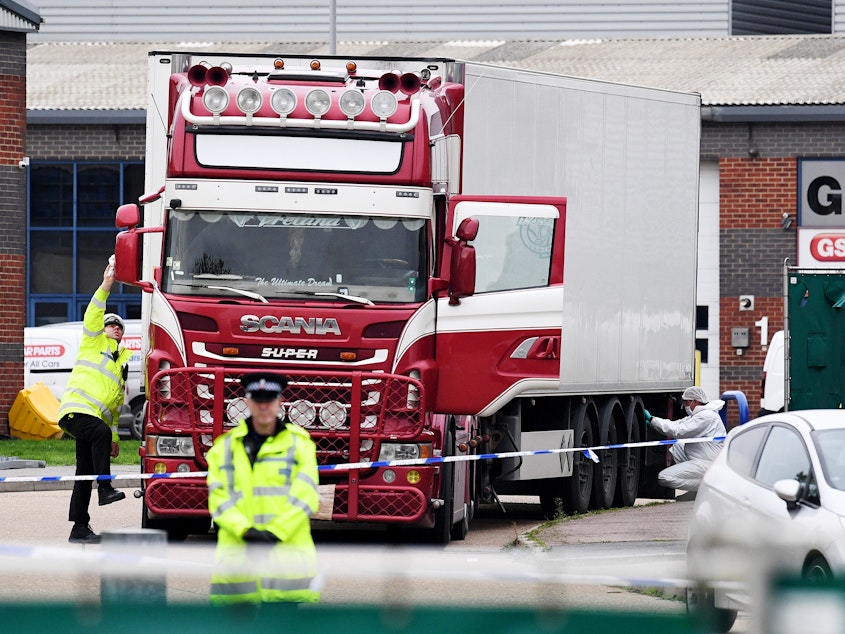Opinion: How Will We Remember Migrants Who Suffer, Strive And Risk Their Lives?

Thirty-nine people were found dead in a trailer this week in Essex, in the United Kingdom. Thirty-one men, and eight women.
They were discovered in the morning, in a sealed, refrigerated container of the kind that ordinarily transports fruits, vegetables or frozen food.
Four people, so far, have been arrested in connection with the deaths. But identifying those who died could take a long time.
Authorities first said they were Chinese nationals; now some Vietnamese families say their loved ones may be among the dead.
They didn't die with passports in their pockets, because they didn't want to be sent back to the places they were trying to flee.
Sponsored
Their deaths are part of a continuing story of our times: people who suffer, strive, and risk their lives to try to come to the other side of the world.
In June of 2000, the bodies of 58 Chinese people were found in a truck in the port of Dover.
In 2014, 35 Afghans — including more than a dozen children — were found in a shipping container on docks in Essex.
In 2015, 71 migrants from Afghanistan, Iraq and Syria were discovered dead in the back of a truck in Austria. One was an infant.
In 2017, 39 people from Mexico and Central America were found packed into a stifling trailer in a Walmart parking lot in San Antonio. Ten people died.
Sponsored
The United Nations says nearly 19,000 migrants have drowned trying to cross the Mediterranean since 2014. Almost every year, migrants are found in shipping containers and the backs of trucks, and on rafts and fishing boats in open, perilous seas. Others perish from heat or cold, trying to cross borders in mountains or brush lands.
The more laws are tightened and entry numbers reduced, the more migrants might turn for help to smuggling gangs, who often also deal in drugs and guns.
"We are between two deaths," a Kurdish man called Taish told the BBC this week. He waits in Dunkirk, France, to pay a fee to ride a truck, illegally and dangerously, into Britain. "39 people die in a truck," he said, "but thousands die in my county."
We're left with many questions about the 39 people found dead in Essex. Who took their money, then was so reckless with their lives? What were they escaping, and what did they hope for? What did they dream about? Who did they leave behind? Who will miss them? And how will we remember them? [Copyright 2019 NPR]
